The Lullaby from Eurovision 2023
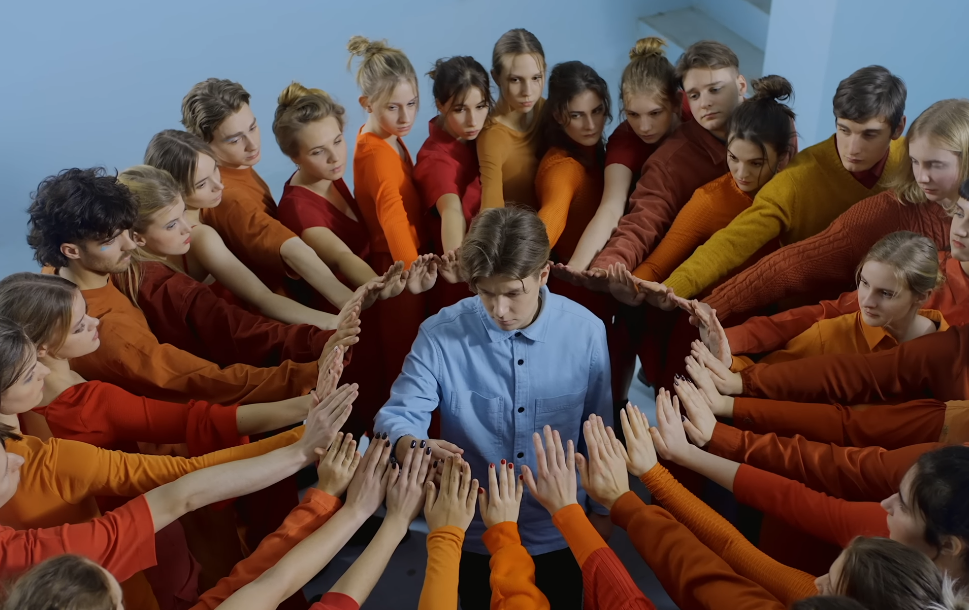
I barely follow Eurovision except during the final show, where I am basically able to compare all the performances of every singer objectively. I have been doing it since the 2021 edition of Eurovision. I found it quite an interesting approach to update my Spotify playlist annually with new underdog artists from (mostly) Europe. Last week was Eurovision week, and as usual, I watched the live performance from the Semi Final stage. This year was quite interesting since several Indie bands competed in the contests and they brought a very standout music for my ears.
However, I found one particular contestant from Latvia that caught my ears: Sudden Light. They brought their song Aijā. The song is in English with a minor ending in Latvian. When I watched the recap of the first Semi Final, I came back to their song and sought after various published versions of the song on YouTube. The song is very simple, yet has a deep meaning from the lyrics itself. It tells from the perspective of a protector that tries to comfort the thought of their important ones. The protector already lost their faith in the world, however, they tried their best to keep their important ones from the heartbreaking reality.
You said some words, didn’t hear you fall asleepPeople were talking louder from my TV screenI heard them scream, it was too dark to seeYou still think we live in a world so beautifulYou see, I think I don’t believe in this stuff anymoreDon’t cryI’ll try to say the right words at the right timesSing you lullabiesPlease don’t wake up, wake up
They also released a music video for their song. I invite you all to try to listen to this song and watch the music video:
The music video even gives deeper meaning to the song. It started with a scene where the person is standing on an empty swimming pool, which in the next scene is filled with people dressed in orange-yellow dresses.
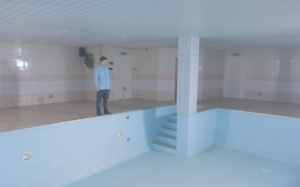
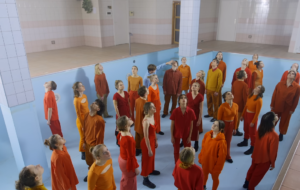
From my interpretation, these orange-yellow-dressed people represent the troubling thought of the person in the blue shirt. The shaky thought was reflected by the shaking body of the people.
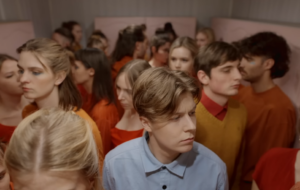
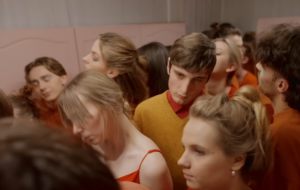
The person in the blue shirt tries to organize the thought. But it is just difficult as all the thoughts are in his head that kept him awake.
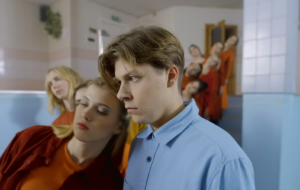
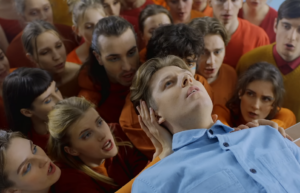
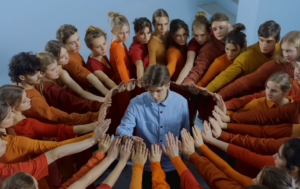
Eventually, he was unable to escape and was just drowned into his troubling thought.
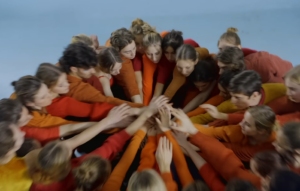
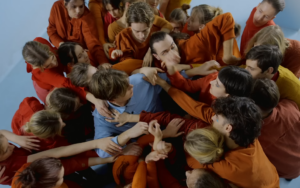
But some of his thought aided him to comfort him. It is represented by him being bathed in the tub. The “good” thoughts were cleaning his troubled thought, seemingly erasing the uneasiness by bathing him. On one hand, it seemed the guy was being forced, but all the “good” thoughts looked selfless to remove his distress.

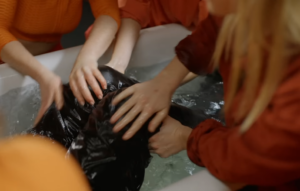
Then they him up from the tub and finally swayed him to slumber, allowing him to calm and sleep, away from the troubled thoughts, supported by the good thoughts.
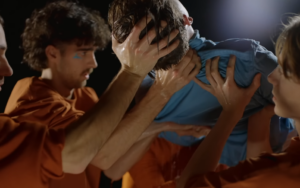
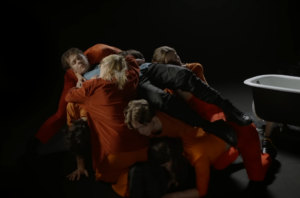
The music video pictured the visualization of a troubled mind, that was struggling to overcome his anxiety. The song itself represents the soothing aid to the troubled mind which eventually allowed him to rest his mind for a moment.
I found the music really relatable to my life, almost like someone is singing this to me. I have never been able to escape from troubled thoughts. I live in constant anxiety over every step I will need to take ahead, every passing and upcoming day. It is just difficult to overcome the worrying thought, but some good thoughts indeed help me to keep strong ahead on my journey. Those good thoughts are carried by important people in my life. They are basically my protectors as represented by the song and I believe it is the manifestation of the God’s protection over me.
And when I finally understand the final part of the song,
Aijā, aijāSaldā miegā
“Aijā” is a word without a real translation that is something Latvians sing to their children as a lullaby.
Then I know I will never be able to hold my tears listening to this song.
This song did not qualify for the Eurovision final. But this is unsurprising because this kind of song is not typical Eurovision winner material. Also, this year there is no judge’s vote for the semi-final, hence relying only on audience votes. I don’t think this kind of song has many audiences, despite its artistic creativity and its deep subliminal message. I read in some comments that said this song is really appreciated only by those who are sensitive enough. Well, I suppose I am that sensitive then. Even then, without Eurovision, I might never be able to get to hear it.
